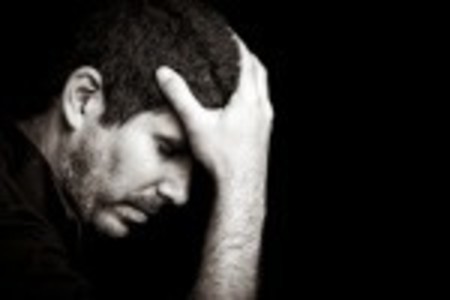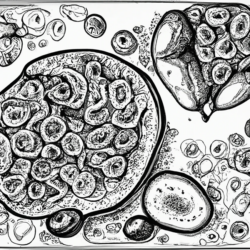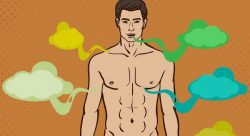Does your guy suffer from chronic pain? Does he use opioid based pain-killers on a regular basis? Then he may also have low testosterone. Low testosterone or as the advertisers call it, Low T, is associated with a range of health issues beyond just reduced libido or sex drive. His low testosterone could be an important factor in his health and recovery.
Testosterone influences, muscle mass, bone density, cognition and memory, depression, and even insulin production. Many men with low testosterone are at risk of osteopenia and osteoporosis. Lower testosterone or hypogonadism has even been associated with an increased risk of heart attack. That means, in addition to worrying about managing chronic pain, the risks associated with long term opioid use, you and your guy now also should be aware of the critical hormone changes taking place. It is possible these hormone changes are compounding an already difficult recovery.
The study, published in the Clinical Journal of Pain, found that 53% of the men tested who were using daily opioids had low testosterone. Moreover, 74% of men using long-acting or time-released opioid pain killers had low testosterone compared to only 34% of those using short acting opioid pain-killers. Interestingly, the morphine-standardized equivalent dose (MSE), a measure of how much pain-killer is circulating in the bloodstream, was not associated with the testosterone levels. This means that higher dose pain killers were not tied to lower testosterone, only the duration of the medication action was associated with the hormone change. Long-acting (time release) pain-killers were linked to lower testosterone while short-acting pills were not.
Long-acting Opioids
- Buprenorphine
- Fentanyl
- Methadone
- Morphine CR
- Oxycodone
Short-acting Opioids
- Oxycodone IR
- Hydrocodone
If your guy is using is opioid pain-killers to manage a chronic pain from injury, have his doctor check his testosterone levels too.
Medical Disclaimer: All material on this web site is provided for your information only and may not be construed as, nor should it be a substitute for, professional medical advice. To read more about our health policy see Terms of Use.













Hey, good post. I am going thru the “chronic pain-RXmeds reducing Testosterone-need for more Low-T treatment-and-more Opioid treatment effect. Basically, long-term pain, whether acute or chronic, lowers testosterone big-time AND it is now showing that this affects the ability of RX opiate-opioid meds to work. You will need more pain meds because the lack of testosterone affects the axis of the Endocrine system and this affects the capability of meds to work in the ‘strength’ they are prescribed. A double-edged sword and then if the pain is not controlled? A vicious cycle – you basically need more more more of the CORRECT Low-T + HCG + an estrogen blocker to get your endocrine system to not burn out.
So, ppl have died from over-stimulation from the lack of enough pain medication to keep 1. The pain down 2. enough to not over-work the endocrine system, and 3. enough to cause ATTENTION by Physician to pay attention to the effects of this balance. From my understanding, they were out of balance and suffered, eventually, from a weak immune system from one or two or ALL of these systems being under duress. If a chronic pain patient sees a GP and if that GP doesn’t understand how this works, the right blood-tests to show SBHG and FREE testosterone? Then, patient runs the risk of not having ANY of his CNS, Respiratory, Sympathetic Nervous systems and brain function to work properly. Then, libido is the least of any worries!
The very best study on this is the following link: http://www.practicalpainmanagement.com/treatments/hormone-therapy/hormone-replacements-treatments-chronic-pain-update-2010
Read this and it gives you all you need – and it is written mainly for Physicians to get a grasp of how important getting this balance between pain treatment, Low-T and a healthy CNS + Endocrine system ALL working to keep a pain patient healthy for the long-term. It literally takes every one of these systems and a good control on the pain for it to work. If the patient is not getting relief? Then there is a very good reason, which can – and most likely will – be found in this study. This is five years old and I can tell you – most of the PROBLEM is getting your different Specialists to work together to get you, not only pain relief, but in doing so – a healthy overall body while RXing the meds – and an understanding that these narcotic meds affect other parts, other systems of the body and they, too, need to be addressed. One affects the other and vice-versa.
So, if you are having issues, your answer could be right here – print it off and hand it to your Specialists. It’s up to you to show them as many of them get tunnel-vision and can’t see the big-picture. It is complicated, but not enough to keep your ‘team’ from keeping you pain free and addressing the other possible affects from chronic pain treatment. A great read, and useful to give to your physicians – so they can get on the same page. Good luck – glad I found this and they will read it and understand how it all fits.
Good morning, I thought I would post concerning the low T. I have been on and off hydrocodone for the past 4 years. Now I am taking oxycodone IR for multiple issues with both shoulders and neck. I can say for sure that my sex drive is diminished 75%. I have not been tested yet but plan to this week when I see my doc. I have never been on long acting opiods but I’m certain the hydrocodone and oxycodone are the culprits. Married men do yourself a favor and get checked, my poor wife quietly endures this feeling of being unwanted. Deep down she knows otherwise but it is still a battle sometimes when I’m generally completely disinterested. I wish I had knew about this sooner. On a side note opiates and opiods are 2 different things. Opiates are derived from opium while opiods are man made, or synthesized to mimic opiates.
I saw this site and thought someone might could benefit from the truth. I have chronic pain, it’ been terrible since 1990.
In 1975 Back fusion of S-1 L-5 L-4, In 1978 pne went undiag. for 25 years.
1990 PNE flare so bad I started taking lortab, then 10mg, Norco, then Duragesic Patch at 150 micro. grams/2 patches, then finally doc. convinced me to go on oxycontin. I am up to 5-80 mgs. daily with testosterone anti-d’s and much more. Going nuts!!!!!!!!!!!!!!!!!!!!!!!!!Pain med. doesn’t seem to work, nightmares every night, headaches etc. So much pain.
This is very common as most pain killers were not designed for chronic use. With chronic use comes receptor down regulation and the need for more and more pain medications to achieve the same result. I have known many people personally have suffered greatly pre and post fusion. I myself avoided fusion, though it was suggested by every doc I went for a c6-7 complete herniation w/ disc particles floating around blocking the foramen. Was in tremendous pain, w/ radicular pain and numbness. Lost a good portion of right tricep function, even 15 years later still very week there. I was fortunate in that I found a physician who would do the diskectomy removing the particles blocking the nerves and then did rehab that included both weightlifting and regular massage (rolfing). To this day if I do not work out and keep things moving and get regular massage I am loose feeling in my left arm and have immense pain. As long as I work out regularly, I am generally OK.